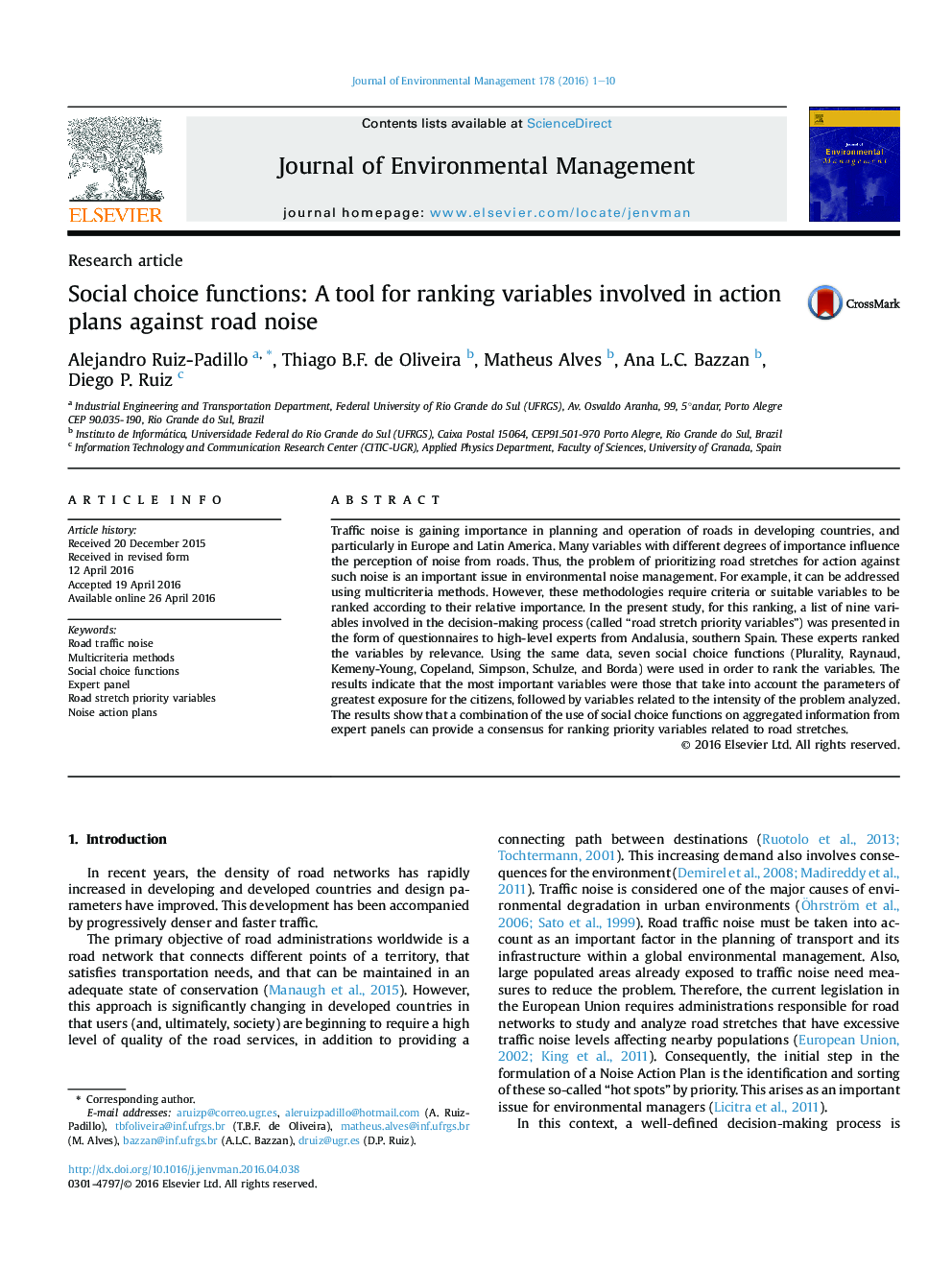| Article ID | Journal | Published Year | Pages | File Type |
|---|---|---|---|---|
| 1055355 | Journal of Environmental Management | 2016 | 10 Pages |
•Variables involved in road-noise action plans are ranked.•This ranking allows using a multicriteria methodology for sorting road stretches.•Social choice functions build a consensus based on expert panel results.•Relative-influence analysis of ranked criteria helps managers.•Criteria taking into account the effect on citizens reach the greatest importance.
Traffic noise is gaining importance in planning and operation of roads in developing countries, and particularly in Europe and Latin America. Many variables with different degrees of importance influence the perception of noise from roads. Thus, the problem of prioritizing road stretches for action against such noise is an important issue in environmental noise management. For example, it can be addressed using multicriteria methods. However, these methodologies require criteria or suitable variables to be ranked according to their relative importance. In the present study, for this ranking, a list of nine variables involved in the decision-making process (called “road stretch priority variables”) was presented in the form of questionnaires to high-level experts from Andalusia, southern Spain. These experts ranked the variables by relevance. Using the same data, seven social choice functions (Plurality, Raynaud, Kemeny-Young, Copeland, Simpson, Schulze, and Borda) were used in order to rank the variables. The results indicate that the most important variables were those that take into account the parameters of greatest exposure for the citizens, followed by variables related to the intensity of the problem analyzed. The results show that a combination of the use of social choice functions on aggregated information from expert panels can provide a consensus for ranking priority variables related to road stretches.
